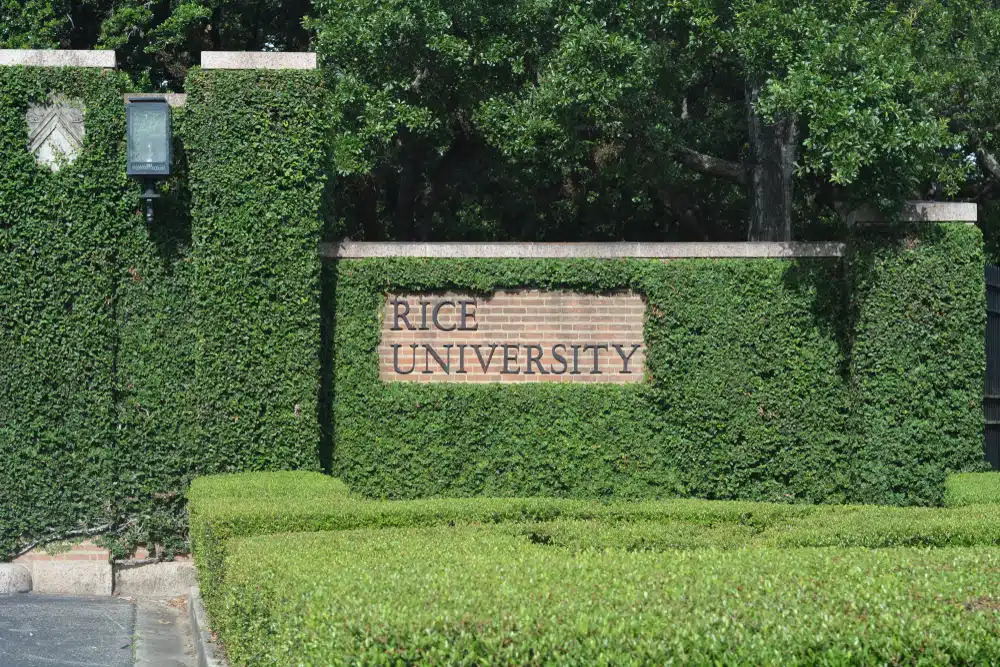Rice University vs the University of Virginia
Two prestigious institutions often compared with each other are Rice University vs the University of Virginia. It can be helpful to understand the similarities and differences between the two institutions. In this comprehensive article, we’ll explore the various factors that should be taken into account when comparing these two highly respected universities.
Location and Campus Size
One of the most striking differences between Rice University and the University of Virginia is their location and campus size. Rice University is located in Houston, Texas, which is the fourth-largest city in the US. The campus itself spans 300 acres and features beautiful Mediterranean-style architecture. In contrast, the University of Virginia is situated in Charlottesville, Virginia, a historic town with a population of around 50,000 people. Its campus spans over 1,700 acres and contains a mix of modern and historic buildings, including an expansive Rotunda designed by Thomas Jefferson.
Another notable difference between the two universities is the climate. Rice University is located in a subtropical climate zone, which means that it experiences hot and humid summers and mild winters. In contrast, the University of Virginia is located in a humid continental climate zone, which means that it experiences hot summers and cold winters with occasional snowfall.
Additionally, the two universities have different student populations. Rice University has a total undergraduate enrollment of around 4,000 students, while the University of Virginia has a total undergraduate enrollment of around 17,000 students. This difference in size can impact the overall campus culture and student experience, with smaller universities often offering a more tight-knit community and larger universities offering more diverse opportunities and resources.
History and Reputation
Both Rice University and the University of Virginia have long and prestigious histories. Rice University was founded in 1912 and has quickly become one of the top institutions in Texas, offering a rigorous academic program and a strong research culture. The University of Virginia, on the other hand, was founded in 1819 by none other than Thomas Jefferson himself. It’s one of the oldest public universities in the US and has consistently been ranked in the top 30 universities nationwide.
Despite their different founding dates, both universities have a reputation for academic excellence and producing successful graduates. Rice University is known for its strong programs in engineering, business, and natural sciences, while the University of Virginia is renowned for its law and business schools. Both universities also have a strong commitment to community service and offer numerous opportunities for students to get involved in volunteer work and social justice initiatives.
Admission Requirements and Acceptance Rates
When it comes to admissions, the process is slightly different at each university. Rice University has a relatively low acceptance rate of around 11%, making it a highly selective institution. Its admissions process takes into account a range of factors, including academic performance, extracurricular activities, and essays. The University of Virginia is also a competitive university, though it has a slightly higher acceptance rate of around 23%. It’s known for its holistic admissions process, which considers both academic and non-academic achievements when assessing prospective students.
Additionally, both universities require standardized test scores, such as the SAT or ACT, as part of their admissions process. Rice University has an average SAT score range of 1460-1570 and an average ACT score range of 33-35. The University of Virginia has an average SAT score range of 1380-1550 and an average ACT score range of 31-34. However, both universities have recently implemented test-optional policies due to the COVID-19 pandemic, allowing students to choose whether or not to submit their test scores.
Academic Programs Offered
Rice University and the University of Virginia offer a diverse range of academic programs. At Rice, students can choose from over 50 undergraduate majors, with a particular emphasis on STEM fields. The university also has a strong focus on research, which is reflected in its numerous research centers and institutes. The University of Virginia offers more than 120 undergraduate majors, as well as a range of graduate programs. It’s particularly known for its programs in law, business, and medicine.
In addition to its undergraduate programs, Rice University also offers a variety of graduate programs, including master’s and doctoral degrees. These programs cover a wide range of fields, from engineering to humanities, and are designed to prepare students for careers in academia, industry, and beyond.
The University of Virginia is also home to a number of research centers and institutes, including the Batten School of Leadership and Public Policy, the Center for Global Health, and the Institute for Advanced Studies in Culture. These centers provide students with opportunities to engage in cutting-edge research and collaborate with faculty members and experts in their respective fields.
Faculty Quality and Student-to-Faculty Ratio
Both Rice University and the University of Virginia have highly qualified faculty members, many of whom are leading experts in their respective fields. Rice has a relatively small student-to-faculty ratio of around 6 to 1, ensuring that students receive personalized attention and support from their professors. The University of Virginia also has a strong commitment to small class sizes and individual attention, with a student-to-faculty ratio of 15 to 1.
Additionally, both universities offer opportunities for students to work closely with faculty members on research projects and other academic endeavors. Rice University has a well-established undergraduate research program, which allows students to collaborate with faculty members on cutting-edge research projects. Similarly, the University of Virginia offers a variety of research opportunities for students, including the chance to work with faculty members on research projects in fields such as engineering, medicine, and the humanities.
Rice vs University of Virginia: Tuition Fees and Financial Aid Options
As with any higher education institution, tuition fees can be a concern for many students and families. At Rice University, the average tuition and fees for the 2021-2022 academic year are around $53,000 per year. However, the university also offers a significant amount of financial aid and merit-based scholarships to eligible students. The University of Virginia is slightly less expensive, with an average cost of attendance of around $39,000 per year. Additionally, the university offers a range of need-based and merit-based financial aid options.
It is important to note that the cost of attendance at both Rice University and the University of Virginia may vary depending on factors such as the student’s major, housing options, and meal plans. Students are encouraged to carefully review the breakdown of costs and available financial aid options before making a decision.
Furthermore, both universities offer work-study programs that allow students to earn money while gaining valuable work experience. These programs can help offset the cost of tuition and fees, as well as provide students with opportunities to network and build their resumes.
Rice vs University of Virginia: Student Life and Extracurricular Activities
Both Rice University and the University of Virginia offer a vibrant campus community with a range of extracurricular activities and clubs. At Rice, students can participate in over 300 student organizations, including cultural clubs, sports teams, and academic societies. The university also hosts numerous events and programs throughout the year, from networking opportunities to guest speaker lectures. The University of Virginia similarly offers a range of clubs and student organizations, including the popular a cappella group and a student-run investment fund.
Moreover, both universities have a strong commitment to community service and encourage students to get involved in volunteer work. Rice University has a dedicated Center for Civic Leadership that offers various service opportunities, such as mentoring programs and community outreach projects. The University of Virginia also has a similar program called the Madison House, which provides volunteer opportunities for students in areas such as education, health, and social justice.
Additionally, both universities have excellent recreational facilities that cater to students’ fitness and wellness needs. Rice University has a state-of-the-art recreation center that includes a gym, swimming pool, and indoor track. The University of Virginia has a similar facility called the Aquatic and Fitness Center, which offers fitness classes, personal training, and recreational sports leagues.
Rice vs University of Virginia: Housing and Dining Facilities
As with any university, the quality of housing and dining can be an important consideration for prospective students. At Rice University, most students live on campus, either in residence halls or apartment-style housing. The university also has a range of dining options, including several cafes and dining halls. The University of Virginia similarly offers on-campus housing and meal plans, with options ranging from traditional residence halls to off-campus apartments. The university prioritizes healthy and sustainable dining, with a focus on locally sourced ingredients.
Additionally, both Rice University and the University of Virginia offer a variety of housing options to accommodate different student needs. Rice University has themed housing communities, such as the Wellness Community and the Arts House, where students with similar interests can live together. The University of Virginia has special interest housing, including language houses and sustainability-focused communities. Both universities also offer gender-inclusive housing options for students who do not wish to live in traditional gender-segregated housing.
Career Opportunities and Job Placement Rates
Both Rice University and the University of Virginia have strong career centers that provide support to students in their job search and career development. At Rice, the Center for Career Development offers a range of resources, including resume reviews, interview preparation, and career counseling. The university also has strong connections to industry leaders and national recruiters, helping to ensure that the skills learned in the classroom translate to real-world job opportunities. The University of Virginia similarly offers an expansive set of career services, including career counseling, workshops, and employer networking events. According to recent data, the job placement rate for University of Virginia graduates is around 96%, reflecting the university’s strong focus on career preparation and mentorship.
Additionally, both universities offer various internship and co-op programs that allow students to gain hands-on experience in their field of study. Rice University’s Center for Career Development offers a variety of internship programs, including the Rice Internship Program and the Shepherd School of Music Internship Program. The University of Virginia’s Career Center similarly offers a range of internship and co-op opportunities, including the UVA Internship Placement Program and the Engineering Career Development Office. These programs not only provide valuable experience, but also often lead to job offers upon graduation.
Research Facilities and Funding Opportunities
As mentioned earlier, both Rice University and the University of Virginia have strong research cultures. Rice has a particular emphasis on STEM research, with numerous research centers and institutes focused on areas such as nanotechnology, biomedicine, and renewable energy. The university also offers funding opportunities for undergraduate and graduate students interested in pursuing research in their field of study. The University of Virginia similarly has a strong research program, with a focus on areas such as neuroscience, data science, and environmental sustainability. The university also has a range of research centers and institutes, as well as funding opportunities for students interested in conducting research.
In addition to the research facilities and funding opportunities mentioned above, both Rice University and the University of Virginia have strong partnerships with industry leaders. These partnerships provide students with opportunities to work on real-world projects and gain valuable experience in their field of study. Rice University has partnerships with companies such as ExxonMobil, Chevron, and Shell, while the University of Virginia has partnerships with companies such as Microsoft, IBM, and Amazon.
Furthermore, both universities have a strong commitment to interdisciplinary research. Rice University has established several interdisciplinary research centers, such as the Rice Center for Quantum Materials and the Rice Space Institute, which bring together researchers from different fields to collaborate on projects. The University of Virginia has a similar commitment to interdisciplinary research, with centers such as the Data Science Institute and the Environmental Resilience Institute.
Rice vs University of Virginia: Diversity and Inclusion Initiatives
Both Rice University and the University of Virginia prioritize diversity and inclusion on their campuses. Rice has a range of programs and initiatives aimed at promoting diversity and fostering inclusion, such as the Multicultural Center and the Community of Scholars Program. The university also has a number of resource centers for different identity-based communities, such as the Women’s Resource Center and the LGBT Resource Center. The University of Virginia similarly has a range of diversity and inclusion programs and initiatives, including the the Office of Diversity, Equity, and Inclusion and the Office for Equal Opportunity and Civil Rights. The university also has a number of student-led organizations focused on promoting diversity and inclusion on campus.
Rice University’s Multicultural Center offers a variety of programs and events throughout the year, including cultural celebrations, workshops, and discussions. The center also provides resources and support for students from underrepresented backgrounds, including first-generation college students and students of color. Additionally, Rice’s Community of Scholars Program is designed to support students from diverse backgrounds in their academic pursuits, providing mentorship, research opportunities, and other resources.
The University of Virginia’s Office of Diversity, Equity, and Inclusion works to create a welcoming and inclusive environment for all members of the university community. The office offers a range of programs and initiatives, including diversity training for faculty and staff, support for student organizations focused on diversity and inclusion, and resources for students from underrepresented backgrounds. The university’s Office for Equal Opportunity and Civil Rights is responsible for ensuring that all members of the university community are treated fairly and without discrimination, and provides resources and support for individuals who have experienced discrimination or harassment.
Rice vs University of Virginia: Athletics Programs and Achievements
Both Rice University and the University of Virginia have strong athletics programs, with numerous varsity sports teams and athletic facilities. Rice competes in NCAA Division I athletics and has a strong focus on sports such as baseball, football, and basketball. The university’s athletes have won multiple conference championships and numerous individual awards. Similarly, the University of Virginia competes in NCAA Division I athletics and has a range of successful sports teams, including the men’s basketball team, which won the national championship in 2019.
In addition to their success in traditional sports, both universities also have strong programs in non-traditional sports such as rowing, fencing, and squash. Rice University’s women’s volleyball team has also had notable success, winning multiple conference championships and making appearances in the NCAA tournament. The University of Virginia’s men’s lacrosse team has also been highly successful, winning multiple national championships and producing numerous All-American players. Overall, both universities have a strong commitment to athletics and offer a wide range of opportunities for students to get involved and compete at a high level.
Rice vs University of Virginia: Alumni Network and Engagement Opportunities
Finally, both Rice University and the University of Virginia have active alumni networks and numerous opportunities for alumni engagement. Rice has a large and active alumni community, with events and programs held around the world. The university also offers mentoring and networking opportunities to current students through its Alumni Association. The University of Virginia similarly has a strong and engaged alumni network, with opportunities for professional development and community service. The university’s Alumni Association also offers career services and networking opportunities to current students.
Additionally, both universities have online platforms for alumni to connect and engage with each other. Rice University has an online directory where alumni can search for and connect with fellow alumni based on location, industry, and interests. The University of Virginia has a similar platform called “HoosOnline,” which allows alumni to network, share job opportunities, and participate in online discussions. These platforms provide a convenient way for alumni to stay connected and support each other beyond in-person events and programs.
Student Testimonials: Experiences at Rice University vs University of Virginia
When it comes to choosing between Rice University and the University of Virginia, hearing from current and former students can be incredibly valuable. Here are a few testimonials from students who attended each institution:
Rice University:
- “I chose to attend Rice because of the strong research opportunities and small, tight-knit community. I’ve had the opportunity to work with leading researchers and professors in my field, and have made lifelong friends at Rice.”
- “One of the things I love about Rice is the diverse student body. There is a real sense of inclusivity and acceptance on campus, which has made my college experience incredibly rewarding.”
University of Virginia:
- “I was drawn to UVA for its strong academic programs and beautiful campus. I’ve had the opportunity to take courses from leading experts in my field and have had access to amazing research opportunities.”
- “The thing that stands out to me most about UVA is the sense of community on campus. Everyone is incredibly friendly and welcoming, and there are so many opportunities to get involved and make connections.”
It’s important to note that both Rice University and the University of Virginia offer unique experiences and opportunities for students. While Rice may have a smaller student body, it allows for more personalized attention and a tight-knit community. On the other hand, UVA’s larger campus provides a wider range of extracurricular activities and events. Ultimately, it’s up to each individual student to decide which university aligns best with their personal and academic goals.
Conclusion
As we’ve seen throughout this article, Rice University and the University of Virginia are both excellent institutions with unique strengths and opportunities for students. When choosing between the two, it’s important to consider factors such as location, academic programs, faculty quality, and career opportunities, as well as personal preferences and fit. Ultimately, the choice will depend on your individual needs and goals as a student. We hope that this article has provided a useful overview of the similarities and differences between these two outstanding universities.
It’s worth noting that both Rice University and the University of Virginia have strong research programs and offer numerous opportunities for students to get involved in cutting-edge research projects. Additionally, both universities have a strong commitment to community service and offer a variety of service-learning opportunities for students to engage with local and global communities. These factors can also be important considerations when choosing between the two institutions.
How AdmissionSight Can Help You With College Admissions
AdmissionSight is a college consulting firm that provides personalized assistance to students throughout the college admissions process. Here are some ways that AdmissionSight can help you:
Admissions strategy: AdmissionSight can help you develop a strategic plan for your college application process. Our professional consultants can assist with identifying schools that are a good fit for your academic, extracurricular, and personal goals and help you plan and prioritize your application strategy.
Application review: AdmissionSight can review your application and provide feedback on how to improve it. We can offer suggestions on making your application stand out and highlighting your strengths and unique qualities.
Essay coaching: AdmissionSight can help you craft compelling essays that showcase your personality, goals, and achievements. We can guide you through the essay writing process and provide feedback on your drafts to help you refine your writing.
Interview preparation: AdmissionSight can provide interview coaching to help you feel confident and prepared for college interviews. Our experts can offer tips on how to present yourself professionally and how to answer common interview questions.
Extracurricular planning: AdmissionSight can help you plan and develop your extracurricular activities to make them more impactful and meaningful. We can suggest activities that align with your interests and goals and provide guidance on demonstrating your leadership and initiative.
Overall, AdmissionSight can provide valuable guidance and support throughout the college admissions process to help you maximize your chances of getting accepted into the college of your choice.
With a high success rate of over 75%, we have built a strong network in the past decade. Book an initial consultation today, free of charge!










































